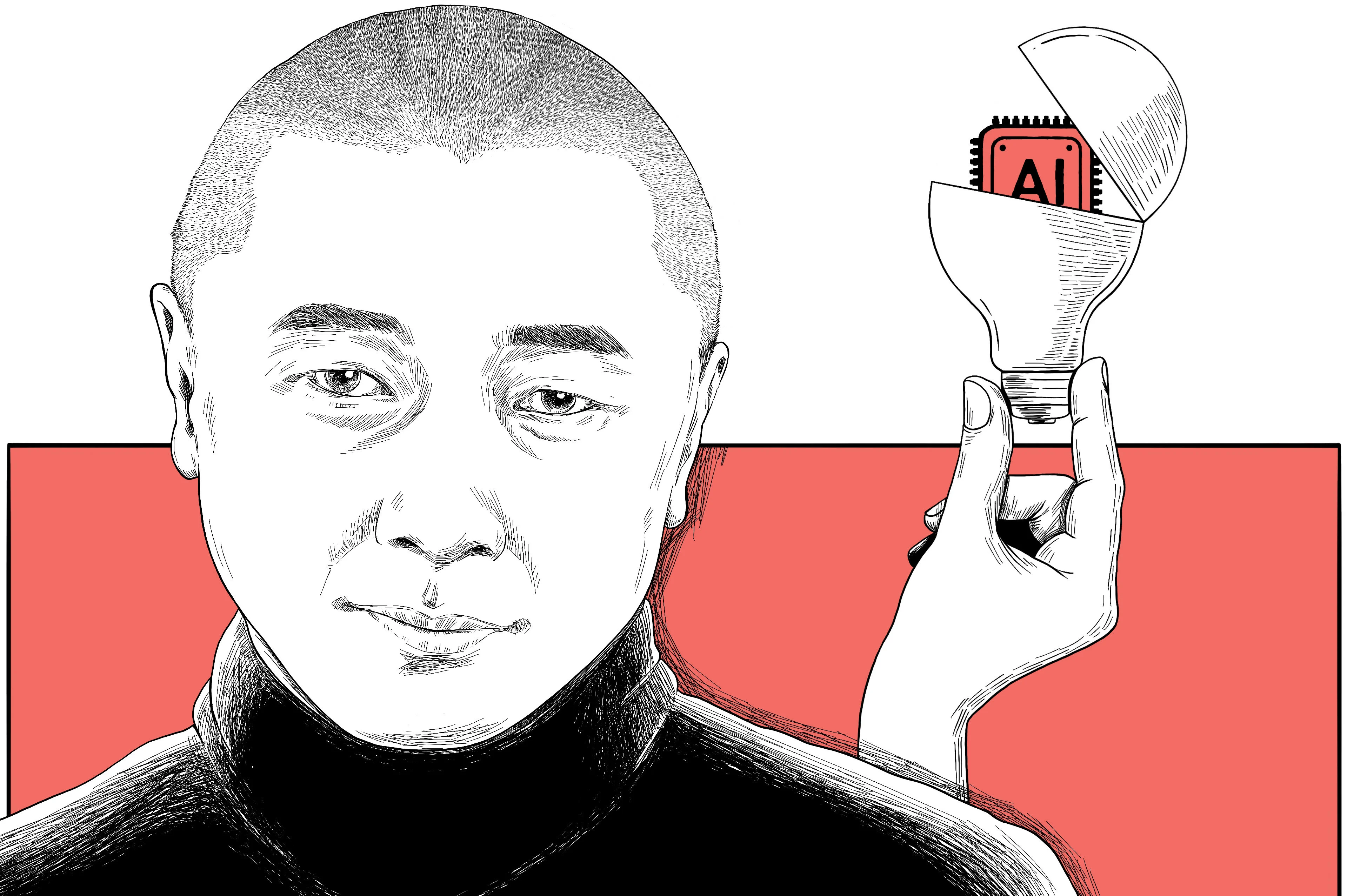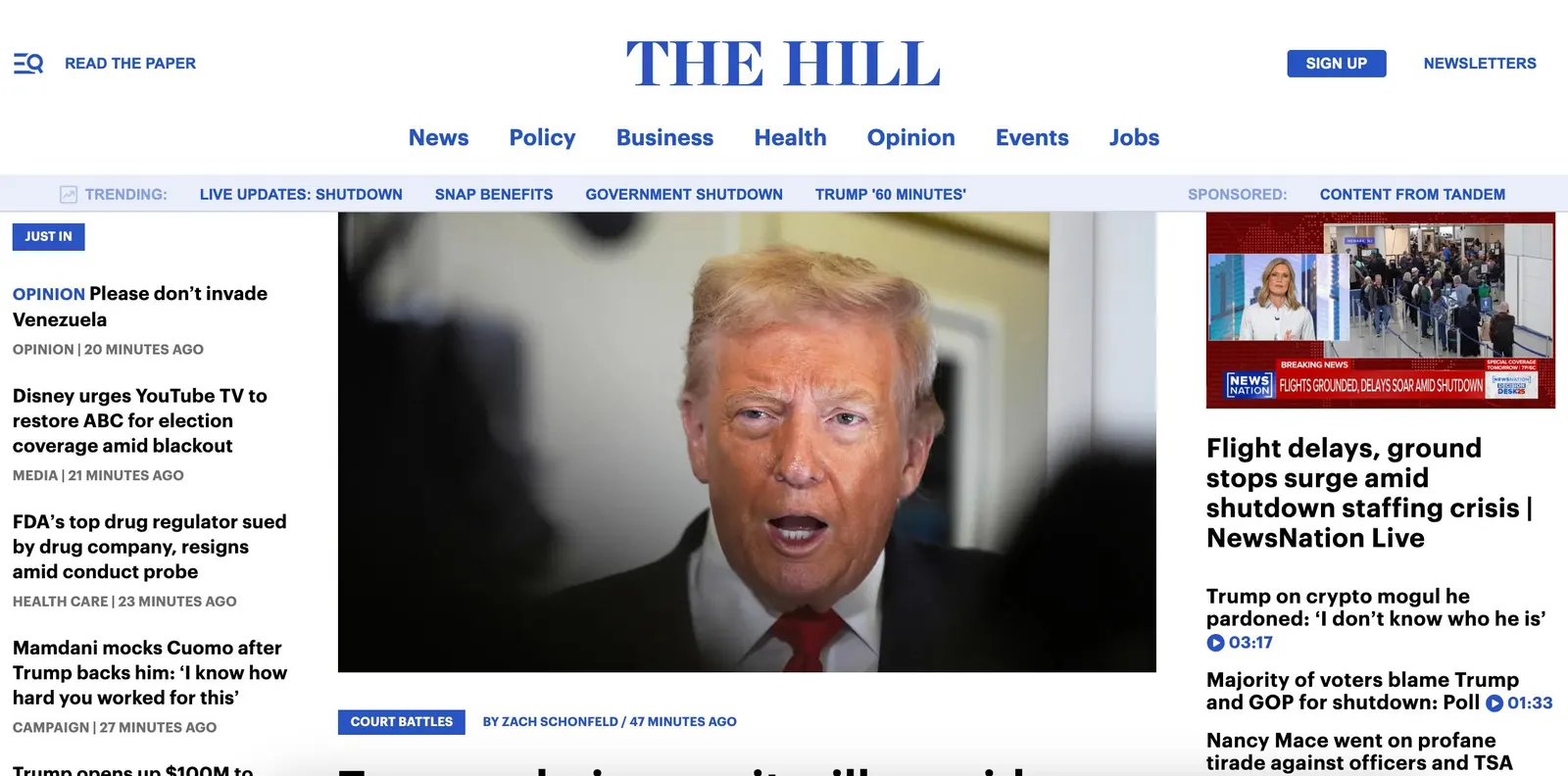Copyright scmp

Ken Liu is an American science fiction and fantasy writer whose prize-winning work includes the Silkpunk epic The Dandelion Dynasty and the short story collection The Paper Menagerie. He has won Nebula, Hugo and World Fantasy awards and is also known for his English translation of the Chinese sci-fi trilogy by Liu Cixin that opens with The Three-Body Problem. Liu was born in Lanzhou in China’s northwest and moved to the US with his parents when he was 11. He has a bachelor’s degree in English literature as well as a law degree from Harvard University and worked as a software engineer, corporate lawyer and litigation consultant before becoming a full-time writer. This interview first appeared in SCMP Plus. For other interviews in the Open Questions series, click here. How has the development of artificial intelligence affected your own writing process and the creative industries in general? Honestly, it’s too early to tell. The analogy I like to use is to think about past instances where disruptive technology became a part of the artistic process. One example is the invention of the camera and all of the amazing things that we now do with it as a storytelling medium. Most people would not have been able to look at the earliest instances of photographs or motion pictures and imagine what these mediums would become today. That’s where AI is today. It will take years, perhaps even decades, for people to figure out how to work with AI as a medium and what new forms of art can be created. Much of the speculation centres on AI imitating humans in writing novels or creating films. That’s akin to using a motion picture camera to film stage plays. It’s a transitional moment at best. These uses will not fully reveal the medium’s potential. I’m much more interested in what humans will be able to do with AI as a medium in terms of new forms of art that could not be done without it. So again, what I would ask people to think about is, what is the AI equivalent of cinema? Cinema, as a medium, would not have existed without the camera. So, what will be the new medium that cannot exist without AI? That’s where it’s interesting. There has been a lot of speculation about whether AI has an effect on the creative process. What do you think? If we go back to the moment when the camera was invented, were artists affected by it? Yes, but the full implications took a while to work out. Not only did artists learn to use the camera to create new art, but they also changed their own art to be less representational, less photographic. It’s the same with AI. There’s no way to know until we have a little distance to see what is happening. Many people who say a lot about what AI is doing to art don’t actually know what’s going on. This is one of those moments where there should be less talking and more experimenting, in the same way many great early artists experimented with the camera. As we experiment with AI, it will transform the way we think about art and our creative processes. So people should do more experimenting rather than worry? Absolutely. What I find extremely problematic is the idea that all AI is inherently bad and that the most important thing to do is to somehow stop it. That’s a very strange attitude. The worst thing we could do now is kill off the potential of a new medium by not even developing it. We have to try. We have to experiment. If you don’t experiment, you’ll never know what’s possible. What are your thoughts on Isaac Asimov’s Three Laws of Robotics? Do they still hold relevance today and, if not, what might replace them? They were always more interesting as literary devices than as concrete engineering principles. For one thing, they’re impossibly vague and require value judgments that cannot be easily reduced to code. To the extent that they stimulated our imagination about a future of intelligent robots, they have served their function. You built your own robo-ken during the Covid-19 pandemic to help with the creative process. Could you share something of that experience? That was a straightforward, silly model that I constructed as an experiment. I used the model as a way to motivate myself to write at a time when I couldn’t write, during the pandemic. The model was trained only on my works, and as anyone who works with LLMs knows, that’s simply not enough data to train something coherent. But the incoherent babblings of robo-ken, straining towards meaning, did provoke me into writing the story “50 Things Every AI Working with Humans Should Know”. How else are you using AI in your writing? I never use AI to draft because it’s not interesting to me. I don’t publish anything that contains AI-generated text without clearly identifying it as such. Besides experimenting with AI as a new medium, I use it as a crude beta reader to provide feedback on works in progress. Generative AI has seen rapid development in both China and the US. An AI-generated sci-fi novel was published in China recently. What are your thoughts on that? On YouTube you can find thousands of videos of people saying “I’ll teach you how to use AI to write a novel”. However, you can’t find a single one where someone says, “I read a story written by AI and I really liked it. Here’s why I think you would like it too.” Not a single one. What about other forms of art like AI-generated pictures? Right now, I think people enjoy the process of working with AI more than the result. One might speculate that it’s the interactivity – the process of engaging with AI – that is actually the medium’s strength. So how do you see AI relating to human imagination? There’s a debate over whether AI can come up with anything original, and it depends on what is meant by “original”. Already, AI has accomplished a great deal of very interesting work in protein folding. I would argue that many of those insights are original. You could say that everything we create is built on things that have come before. Certainly, some of the utterances of LLMs, being derived from human models, are original in the same sense. Some people argue that humans don’t just take what already exists and try to generate new things based on it. Sometimes we make entirely new leaps. Artists delve into the collective unconscious where stories live. We find the stories and then we try to bring them back to share with everyone else Some say that LLMs are incapable of such leaps. I agree that language models, as currently architected, are not capable of such leaps, but that doesn’t mean AI could never achieve such a thing. I’m fundamentally a materialist. I don’t think there’s anything mystical about humans. If you can figure out how our consciousness works and replicate those functions using other hardware, I think you can recreate consciousness. I agree that current generative AI is not, in fact, a reconstitution of what the human brain does. Of course, you wouldn’t expect it to be able to do everything the human brain can do. In that sense, perhaps it’s not capable of imagination, but we don’t fully understand what these models are doing. The technology is ahead of the science. Many people read popular science articles and claim that these models are nothing more than fancy auto-complete. That’s not an accurate view of what’s going on. What is the essence of art in the age of AI? Artists delve into the collective unconscious where stories live. It’s the same place where myth, spirituality and all true religion originate. We find the stories and then we try to bring them back to share with everyone else. People enjoy art because we all harbour some shadow, some connection, to that collective unconscious. That’s what we’re trying to do when we create art and appreciate art. We’re trying to say with words what cannot be said with words. Now you might argue that this is probably the biggest difference, in terms of AI: that humans are trying to say with words what cannot be said with words, and humans are trying to paint what cannot be painted. That’s the essence of human art. AI models, on the other hand, are just working with pixels, numbers and letters. They don’t have access to the collective unconscious. Language models appear intelligent while solely working with language as symbols. They are surfacing the degree to which intelligence, wisdom, creativity and imagination are encoded within the structure of language – perhaps we’re sensing an echo of embodied human intentionality and imagination extracted from the words we have put out. To me, this surfacing of captured, synthetic human intentions is the essence of AI art. You have often given talks about the future to universities. How can science fiction – and perhaps fantasy – teach us to think about what lies ahead? I don’t think fiction ever teaches people anything. That’s a very instrumentalist view of it. What fiction does is simply exercise the imaginative capacity of the reader and give them another life. Fiction is not a passive medium. It requires the reader to do considerable work. You must put yourself into the story before you can understand it. At least half of the story you experience is from you, not the writer. What sci-fi has to be good at is retrieving from the collective unconscious mythical symbols that allow us to discuss the future in a way we couldn’t before. Sci-fi is the mythology of the future but, like all mythologies, it can’t predict anything. Sci-fi has always got the future wrong. A good example is Frankenstein. As a novel, it is obviously not particularly predictive of anything. We don’t put cadaver parts together and jolt them with electricity to create new life. However, Mary Shelley was able to tap into the collective unconscious and retrieve the Creature, which has now become a part of our collective imagination, akin to a god. When we talk about new technologies, people always invoke Frankenstein’s monster. Shelley’s Creature has become a mythological figure, a way for us to reason about technology and to work through our own anxieties with it. Good science fiction should create a mythology of the future. In your short story collection The Paper Menagerie, you weave in traditional Chinese elements but tell the stories in a way that feels emotionally universal. How were they shaped by your own experiences? Every particular cultural experience is universal. Whether something is traditionally “Chinese” is not relevant. All experiences are reflective of the collective unconscious and therefore become the source of stories. I think it’s the same for all artists. The stories they learn are based on their own lives. Whatever life they live, they have acquired a particular set of images, words, metaphors and ideas. But what is important is whether they can use those things to say what is beyond them? Can they use those things to say what cannot be said? Can they use them to sketch the mythological figure they retrieve from dreams or the collective unconscious, allowing others to see it as well? That’s what matters, and that’s what I try to do. A lot of sci-fi about how alien communications would work is missing the mark, in my opinion But do people from different backgrounds always relate to the collective memory as you say? There seem to be more misunderstandings than understanding among people these days. Scientist Sara Walker has stated that our ability to understand each other is due to our shared history. It seems like such an obvious point, but it’s actually quite profound. It’s easier for us to understand dogs than it is for us to understand turtles because we share far more history – evolutionarily recent history – with dogs than we do with turtles. All humans think about the universe pretty much the same way. That’s what allows art to happen – the fact that we share these same things. Otherwise, we could not possibly say with words what cannot be said in words and achieve that understanding. That is why a lot of sci-fi about how alien communications would work is missing the mark, in my opinion. The idea that it would be about rationality, of reducing everything down to universal logic that has no context, no story – I don’t think that’s really likely at all. If we and these aliens had no shared history, it would be almost impossible for us to understand each other. The only hope is that, even without an evolutionary history, our shared existence as material beings in a material universe may provide enough common ground to construct some kind of understanding. And, of course, we can build on that history after the encounter and develop that understanding over time. You have also posed questions in your work about who gets to tell the American story. Could you share some of your thoughts on that? This relates to the mythological aspect, the stories we tell about ourselves, our families and the people we belong to. Collective storytelling is one of the most important things we humans do, because our identities are essentially stories. What does it mean to be an American? This is not a scientific question. There’s no scientific answer. It is, fundamentally, a matter of storytelling. We tell a story about what it means to be American and then we subscribe to that story, and we fight over it. We tell that story, we change that story, we refute that story, we expand on that story. That’s how a nation gets defined. That’s fundamentally how this works. Like many other American artists, much of my work is fundamentally about how the American story is told. Maybe there’s something unique about the American imagination, where we’re always trying to figure out who we are and what it means to be us. Maybe it’s because the American sense of identity is still very young, and it is explicitly mythological in a way that some other national identities are not. Our mythology is new, fresh and perhaps more malleable, which makes the American story particularly interesting. The American story is dynamic. People fight over it and reconstruct it every generation. I don’t think that’s a bad thing. If people are no longer fighting over a story, then the story is dead. All living stories constantly evolve. That’s how it works. You are the creator of the sci-fi genre Silkpunk and its very specific technology and literary aesthetic. Could you tell us a bit about it? Silkpunk is a label I use to describe my epic fantasy series, which is an interrogation of what modernity means. Our modernity is primarily based on a particular story about Greece and Rome, the European Renaissance and Enlightenment, culminating in modern-day America. Modernity, to many other parts of the world, is based on this vision. The starting point of “modern history” for many parts of the world is the moment when they were forced to engage with European and American expansionism. To be “modern” is to be like these places. And what I wanted to do with Silkpunk was to say, what if there are other possible modernities? The Dandelion Dynasty is an attempt to construct an alternative modernity based on East Asian traditions, philosophies, technologies and world views. How do we construct modernity using a different set of mythological references? When we discuss the modern world in the West, we often refer back to Greco-Roman models, and the language of modernity, including words for science, politics, mathematics, economics and so on, is usually constructed from Greek and Roman roots. We literally take the past and cobble it together into the future. But what if you take other histories, other mythological references, other potentials? Can you construct a different modernity using those? Why can’t all the other traditions of the world also be reconstituted, remade, reused and repurposed for modernity? That’s what the Silkpunk aesthetic is about. It’s about taking East Asian traditions and using them for different purposes. “Tradition” shouldn’t be fossilised; it should evolve and change and live. Many people say that modernity feels to them like a translation of a tradition that they have to learn, but their own traditions are excluded. I want to show a different way of thinking about modernity that can make us all feel at home. You have done so many different things and been successful in each of them. How did you achieve so much? I’ve always just done things that are interesting to me at the moment. So, when I found it interesting to be a lawyer, I became a lawyer. When I found programming interesting, I became a programmer. Trying to chase stability by predicting what’s going to happen in the future – that’s a loser’s game If you’re excited about the thing you’re doing, then you’re going to devote energy to it. We only live on this earth for 70 or 80 years, so you might as well try to spend that time doing the most interesting things. What’s the point of doing something that doesn’t excite you just to survive? We’re all going to die in the end, so you might as well spend that time doing things you find interesting. True, but young people have a lot of concerns about how things will work out. There’s no sure or safe thing in life. When I started as a programmer 25 years ago, it seemed like a wonderful, secure career path. However, today many junior programming jobs are being replaced by AI. I don’t think people could have predicted that 25 years ago, so you have no control over the future. Trying to chase stability by predicting what’s going to happen in the future – that’s a loser’s game. Try to do the thing that’s interesting to you and see if you’re good at it. If you are, then you can figure out how to get people to pay you for those skills later. How did you figure everything out? Still working on it! I think we’re just supposed to always be works in progress. I just think it’s much easier to love something and then try to figure out how to make money with it, rather than do something that makes money and then try to fall in love with it. Many young people nowadays feel like they don’t really have a choice. I would say that it’s much easier when you’re young to take risks than when you’re older. So you might as well do the interesting thing when you’re young, because you have time to recover if things don’t work out. Most people actually have more choices than they think. It’s silly to me to hear people who are hyper-educated lament the fact that they have no options other than to go into finance. If you have the choice to do things that interest you, then you should try them. Life is too short to let the fear of change keep you unhappy. Support for this reporting was provided by the Melvin MS Goo Writing Fellowship



